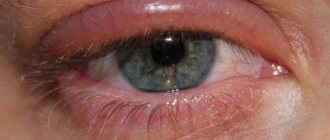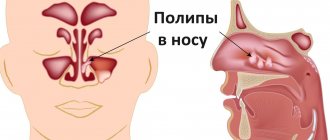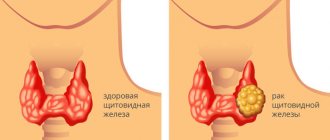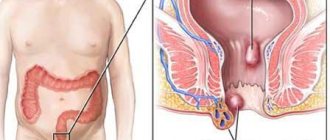An increase in a person’s weight is usually associated with the fact that he eats a lot, has bad habits, moves little, or uses specialized treatment. However, there are also situations when the number on the scale increases against the background of a situation that seems not to predispose to this.
Elena Gubkina, head of the endocrinology department of the clinical diagnostic department, an endocrinologist of the highest qualification category , told AiF.ru about what reasons lead to unexpected weight gain and when to be wary
“A person’s lifestyle directly affects his health. Sleep disturbances, poor nutrition, decreased physical activity and impaired drinking habits - all this can be the cause of various disorders and diseases,” says the endocrinologist.
Article on the topic
Three Graces. How can a diet help correct hormonal levels and lose weight?
Causes and mechanism of obesity
The mechanism for the development of obesity is based on an imbalance between energy intake and energy expenditure. Excess calories are stored by the body in the form of adipose tissue. The problem of excess weight has different causes:
- hereditary predisposition (noted in 66% of cases);
- overeating – excessively large portions or high calorie dishes, late large dinners;
- unbalanced diet - passion for refined carbohydrates, carbonated drinks, sweet fruit juices.
- sedentary lifestyle – sedentary work, refusal to play sports;
- diseases of the nervous system in which the saturation center is affected;
- diseases of the endocrine system - hypothyroidism, pancreatic tumor, hypercortisolism (Cushing's syndrome);
- some physiological conditions - breastfeeding, menopause, pregnancy;
- long-term use of certain medications - antipsychotics, corticosteroid hormones, antidepressants;
- chronic stress, insomnia (lack of sleep activates the feeling of hunger).
The causes of obesity in children can be excess weight and improper treatment in the mother, as well as intestinal dysbiosis.
Pathological eating habits play an important role in the mechanism of obesity development. One of them is compulsive overeating (“problem eating”). Such people eat a lot and quickly, without feeling full. Sudden weight gain is accompanied by psychological disorders.
Night eating syndrome is a condition in which a person does not feel hungry in the morning and refuses to eat. In the evening, such people overeat, cannot fall asleep for a long time and eat food at night. More than 50% of the daily diet occurs in the evening and night. These forms of obesity are considered the most severe and the most difficult to treat.
Causes of weight gain
Binge eating
In healthy people, the most common cause of weight gain is regularly consuming more calories than needed for a given height and activity level. The quality of food comes in second place - extra pounds appear when you overeat both fats and carbohydrates, the excess of which also turns into lipids. Weight gain occurs gradually, by 1-3 kg per month. A person notices that the usual clothes become tight, fat folds form in the hips, arms, and abdomen. A rapid or sharp increase in volume is an indication for a visit to the doctor.
Stress
Prolonged emotional stress can lead to the release of adrenal hormones and changes in metabolic processes, which is manifested by increased fat deposition. These reasons are more likely to cause rapid weight gain in women, who are more susceptible to mood swings. People who tend to “eat away” their problems are able to gain 5-6 kilograms per month under chronic stress. At the same time, body proportions are preserved, fat deposition occurs according to gender: in women in the lower abdomen and on the hips, in men - in the torso area. White stretch marks form on the skin, it becomes pale and pasty.
Wrong lifestyle
Physical inactivity causes weight gain even with normal calorie intake, while the qualitative composition of the body deteriorates - the percentage of body fat increases, the amount of muscle decreases. Weight may increase by only a few kilograms, but appearance noticeably suffers: the skin looks flabby, cellulite appears, fat folds appear on the abdomen, back, and armpits. Extra pounds are formed due to lack of sleep due to insomnia or improper organization of the regime, which is caused by a slowdown in metabolism and sharp fluctuations in the level of leptin, which is responsible for the feeling of fullness.
Fluctuations in sex hormones
In teenage girls, ovarian function develops; therefore, during puberty, excessive fullness is often noted, which disappears after the menstrual cycle normalizes. A drop in the amount of estrogen and fluid retention are the key reasons for sudden noticeable weight gain before menstruation in women, especially significant in the edematous form of premenstrual syndrome. The weight increases 2-3 days before the onset of menstruation due to water, after the start of bleeding the weight returns to normal. The increase in volume is also provoked by an increase in appetite in many women before their critical days.
Weight gain is a characteristic sign of the onset of menopause. During this period, the production of estrogen in the female body rapidly decreases, as a result, the metabolic rate is disrupted and excess fat deposition occurs. Patients suddenly gain 5-7 kg per month, large fat folds form in the abdomen and thighs, and the body becomes loose and flabby. There is a variant of menopause in men, which begins after 50 years, when the amount of testosterone decreases. This promotes the accumulation of fat in the upper torso and abdomen.
Itsenko-Cushing's disease
When ACTH levels increase in the body, hyperproduction of adrenal hormones occurs with a change in metabolic processes towards the synthesis and deposition of fat. An increase in volume in Itsenko-Cushing's disease is detected mainly in the abdominal region, due to which the proportions of the body are disturbed: the abdominal circumference increases to 90-100 cm or more, the arms and legs appear thin compared to the body. Purple stretch marks form on the skin of the thighs and abdomen. In addition to visible symptoms, disturbances in the functioning of internal organs develop: myocardial damage, hypertension, osteoporosis.
Hypothyroidism
With hypofunction of the thyroid gland, the synthesis of its hormones decreases, which causes a slowdown in metabolic processes and increased deposition of lipids in the subcutaneous tissue. The formation of extra pounds is possible even with a moderate diet; weight gain is accompanied by other symptoms - constipation, coldness and pale skin. To the visible signs of hypothyroidism as the cause of the accumulation of extra pounds, asymmetry and enlargement of the neck are often added, which is caused by the proliferation of thyroid tissue.
Mental disorders
In schizophrenia, a rapid increase in volume is associated with a violation of the nervous regulation of hunger and satiety, so the patient can eat every half hour or hour and still remain hungry. With dementia and senile dementia, polyphagia (gluttony) is also observed, which contributes to the appearance of excess weight. Sometimes excess body weight becomes a consequence of bulimia nervosa, when a person absorbs food in huge quantities and then tries in every possible way to cleanse the gastrointestinal tract (by vomiting, taking laxatives). With bulimia, weight increases by no more than 3-5 kilograms.
Complications of pharmacotherapy
Long-term use of corticosteroids and female sex hormones are important causes of sudden weight gain. Patients gain 8-10 kilograms in a short period of time; side effects in the form of obesity are more pronounced when using maximum dosages of drugs. In addition, due to a significant increase in appetite, patients with type 2 diabetes mellitus overeat and gain excess weight when treated with sulfonylurea drugs. Weight gain can be provoked by the prescription of loop and thiazide diuretics, beta-blockers for hypertension.
Rare causes
- Genetic diseases
: Carpenter syndrome, Lawrence-Moon-Biedl syndrome. - Disorders of hypothalamic-pituitary regulation
: Pickwick's syndrome, adiposogenital dystrophy. - Space-occupying lesions
: insulinoma, polycystic ovary syndrome (PCOS).
Obesity levels
The severity of obesity is determined by body mass index (body weight in kilograms divided by height in meters squared). A BMI of 18 to 25 is considered normal.
There are several degrees of obesity:
- initial (pre-obesity) - excess of normal body weight by 25 - 29%, the main symptoms are not yet expressed, sometimes subject to correction with diet;
- first degree - weight gain by 30 - 35%, is felt by people more as a defect in appearance than as a disease; the first symptoms of excess weight appear - swelling, shortness of breath, increased sweating
- second degree – 35–40% excess body weight, fat deposits are clearly expressed, well-being and physical activity worsen;
- third degree – excess of normal body weight by 40% or more. Complications develop - shortness of breath even at rest, edema, high blood pressure, diabetes mellitus. A person cannot take care of himself.
Starting from the first degree of the disease, it is necessary to seek help from specialists.
Water scarcity
As doctors note, plain water can also affect weight gain. More precisely, its lack. “To lose weight, you need to balance your drinking regimen. Water regulates a number of functions in the body, suppresses appetite, and removes toxins. Regular consumption of drinking water reduces the amount of harmful calories that can come from other drinks or food,” says the endocrinologist.
In addition, the specialist notes, excess weight is often associated with fluid retention in the body and consumption of salty foods. “According to some data, 10 grams of table salt can hold about 1 liter of liquid, which is equivalent to 1 kg of weight. Therefore, it is advisable to reduce the amount of salt consumed, give up sausages, chips, etc.,” advises Gubkina.
Article on the topic
Minus breakfast or dinner? How to learn to eat everything and lose weight
What are the dangers of obesity?
Obesity triggers a whole series of pathological conditions in the body. The list of the most common complications includes:
- type 2 diabetes mellitus – impaired glucose absorption due to decreased cell sensitivity to insulin;
- diseases of the heart and blood vessels - atherosclerosis, coronary disease, myocardial infarction, strokes, hypertension, cardiosclerosis, thrombosis and thromboembolism;
- fatty liver degeneration leading to cirrhosis;
- cholelithiasis;
- diseases of the musculoskeletal system - arthritis and arthrosis, spinal osteochondrosis, damage to muscles and tendons;
- skin diseases - increased blood sugar levels and excessive sweating cause diaper rash in the folds of the skin;
- gynecological diseases – polycystic ovary syndrome; without treatment of obesity, women develop infertility;
- in men – decreased testosterone levels, sexual dysfunction;
- oncological diseases of the breast, colon and other organs;
- night snoring, obstructive apnea syndrome (breathing stops during sleep) - occurs if fatty deposits in the neck impair the airway.
One of the main dangers of advanced obesity is Pickwick syndrome. It is accompanied by respiratory failure, oxygen starvation of the body, and increased drowsiness. In such patients, the risk of premature death increases sharply.
In addition to physical illnesses, obesity entails socio-economic and psychological problems. Such people are limited in their choice of clothes and shoes. They cannot afford some hobbies and sports.
Overweight people often have difficulty communicating. In childhood and adolescence, they are subject to ridicule and even bullying from their peers. This negatively affects self-esteem; in the future it is difficult for them to make new acquaintances and relationships, or start a family. Lack of self-confidence negatively affects your career. Often, all these problems lead to the development of depression, even to suicide attempts.
About the syndrome
The problem we're looking at isn't just weight loss. In essence, this is a condition that is characterized by loss of muscle mass, but loss of fatty tissue is not at all necessary.
Muscle mass decreases due to anorexia and metabolic disorders.
This syndrome of patients with cancer is characterized by four symptoms:
- Loss of skeletal muscle mass;
- Anorexia;
- Saturation with small amounts of food;
- Fatigue.
This syndrome is characteristic of the last stage of cancer of the stomach and pancreas. It is also noted in patients with cancer of the lungs, colon and prostate gland (almost 50% of cases), in patients with breast cancer (approximately 1 case out of 4).
In principle, the syndrome can manifest itself in different types of cancer tumors. As a malignant neoplasm develops, it consumes more substances and needs more energy. The patient's appetite decreases and the digestive process is disrupted. Approximately a quarter of cancer patients die due to cachexia.
Ways to combat excess weight
Excess weight is a problem that is widespread throughout the world and is affecting an increasing number of the population. In this regard, many methods of treating obesity have been developed:
- diets and therapeutic fasting;
- medicines and nutritional supplements;
- sports programs;
- hardware procedures;
- surgical removal of fat deposits (liposuction);
- behavioral psychotherapeutic interventions;
- non-traditional methods - acupuncture, magnetic bracelets, etc.
At first glance, all these methods seem effective and safe. However, each of them has some disadvantages.
Diets
Losing weight with the help of diets involves reducing the amount of food and eliminating high-calorie dishes or certain foods. Often, in an effort to quickly lose weight, people resort to strict restrictive diets (Kremlin, Montignac, Dukan, Paul Bragg fasting), as well as mono-diets (kefir, rice, etc.). However, the harm from such nutrition significantly outweighs the benefits.
The negative aspects of different diets for excess weight include:
- slowdown of metabolic processes - the body sharply reduces calorie consumption and begins to literally “store” nutrients for future use. As a result, a person gains weight, even eating only buckwheat or salad leaves;
- a constant feeling of hunger, causing irritability, nervousness and leading to breakdown;
- rapid return to previous weight after finishing a short-term diet;
- reducing the volume of not only fat, but also muscle tissue - especially important for protein-free diets;
- hormonal imbalances - dysfunction of the thyroid gland, adrenal glands, cessation of menstruation and infertility in women;
- development of diseases of the gastrointestinal tract - gastritis, peptic ulcer, pancreatitis, etc.;
- kidney damage - develops when using diets rich in protein; as a result, the kidneys cannot withstand the high load, and serious chronic diseases develop;
- severe anemia, decreased amount of protein in the blood;
- mental disorders - neuroses, depression, psychotic disorders.
Most of these diets are a serious stress for the body. In addition, they are short-term in nature, after their completion the weight not only returns, but becomes even greater. Proper nutrition for overweight should be balanced, with a limit on the amount of food eaten. The diet should be varied and contain all the substances necessary for the body. It is advisable to eat food 4–6 times a day.
Medicines and nutritional supplements
Recently, more and more medications have appeared to treat obesity and dietary supplements that “burn fat.” According to the mechanism of action, all funds can be divided into 5 conditional groups:
- psychostimulants that reduce hunger - contain caffeine, plant extracts (guarana, garcinia cambogia), etc.;
- herbal laxatives (senna leaf);
- diuretics, which remove fluid from the body;
- enhancers of intestinal motility (IMC) - swell in the stomach, creating a feeling of fullness and at the same time speed up intestinal function;
- fat burners – papaya extracts, bromelain.
Psychostimulant drugs for the treatment of obesity cause rapid addiction, depression, agitation, and then exhaustion of the nervous system. In addition, they negatively affect heart function, blood pressure, kidney and liver function.
Taking laxative teas for weight loss causes intestinal atony and inflammatory processes. Loss of water and potassium leads to disruption of the heart. Diuretics have a similar effect.
Peristalsis stimulants provoke irritation of the mucous membrane of the stomach and intestines, inflammatory and ulcerative processes. Over time, the digestive system stops working independently, and “lazy bowel” syndrome develops.
Widely advertised fat burners are just enzymes that speed up the breakdown of food. It is hardly possible to lose significant weight with their help.
Endocrinologists prescribe only 2 groups of drugs for the treatment of obesity. Some contain the active ingredient sibutramine, others contain orlistat. They should only be prescribed by a qualified doctor after examination and exclusion of contraindications. They are sold in pharmacies strictly according to prescription. Both medications for treating obesity in women and men are expensive. The rest of the products are considered food additives. Not all of them are licensed and officially approved for use.
All of the drugs listed have contraindications and side effects. Herbal remedies or exotic “Chinese obesity pills” can be especially dangerous. The effect of their components has not always been studied. Such drugs can cause a severe allergic reaction or poisoning.
Sports training
Dosed sports activities are definitely necessary. They improve muscle condition, make ligaments and joints more flexible and elastic. Physical activity has a beneficial effect on all organs and systems, enriches tissues with oxygen and activates metabolic processes.
It is important to remember that exhausting hours of exercise will not lead to rapid weight loss. After a workout, your appetite always increases and often the lost calories are immediately replaced by eating chocolate. Excessive physical activity leads to the breakdown of protein, amino acids and carbohydrates. The products of this breakdown accumulate in the muscles, causing severe pain for several days after exercise.
Almost 50% of overweight people hesitate to start going to the gym. They are hampered by embarrassment and self-doubt. Most of them are sure that in the hall they will become the object of everyone's attention and even ridicule. They are afraid of getting into an awkward situation and looking ridiculous.
Some people decide to lose weight at home and buy expensive exercise equipment for this. However, banal laziness prevents me from starting to study. Even if you manage to defeat it, independent training without a system does not give any results. As a result, exercise equipment gathers dust in the corner, excess weight does not go away, and wasted time and money cause disappointment and depression.
In order for sports to significantly reduce weight, you need to work with a trainer according to an individual program. Training should be carried out at least 3 times a week for many months in a row. Not all people have that much free time. In addition, individual programs are not cheap.
Intense training is not suitable for the treatment of stage 3 obesity if the patient has ischemic or hypertension disease and other complications.
Nature ordered it this way
Representatives of the fair sex are 4 times more likely to be overweight, and all because their percentage of body fat is a priori one and a half times higher. Among other things, during the period of bearing a child and breastfeeding, almost every woman’s weight increases. This means that if a woman has not returned to her original shape after her first pregnancy, during subsequent pregnancies her weight will only increase, which will lead to obesity. If a woman initially had a tendency to be overweight, we can give a 99% guarantee that she will suffer from obesity in the future.
why does a woman have a big belly
Hardware and surgical fat removal (liposuction)
Liposuction is an operation aimed at removing excess weight from the abdomen, hips or buttocks. There are several types of procedures - laser, ultrasound, vacuum. The main goal of this method is not to reduce weight, but to correct the contours of the figure. Liposuction removes excess fat tissue and is not a treatment for the causes of obesity. The extra pounds may return after 1 to 2 years.
This intervention does not leave its mark on the body. Removing more than 4 - 5 kg of fat at a time leads to a large loss of blood, since this tissue is rich in capillaries. In case of advanced obesity, removal is carried out in several stages. This means that several traumatic operations under general anesthesia will be required. Possible side effects:
- impaired skin sensitivity in areas where fat is removed;
- bruises and pigment spots on the skin;
- intolerance to drugs for anesthesia up to anaphylactic shock;
- damage to large vessels and the development of fat embolism;
- postoperative anemia.
Contraindications to liposuction include hypertension, chronic kidney and liver diseases, cerebrovascular accidents, and sagging skin.
Behavioral psychological interventions
Many psychological programs promise “weight loss in 7 days without pills or workouts.” Although such programs do not cause serious harm to health, they also have some disadvantages. Not all people have developed willpower and awareness. Subconscious resistance to work can lead to outbursts of irritability and even aggression.
“Coding” for excess weight deserves special attention. It is carried out using direct or indirect suggestion, often under hypnosis. The procedure is not always effective. In addition, in people with an unstable psyche, it can provoke serious disorders, including delusions and hallucinations.
Psychological correction is more suitable for the treatment of initial obesity. It is advisable to carry it out only in combination with other methods.
Unconventional methods
Alternative medicine offers to treat obesity by influencing biologically active points responsible for the feeling of hunger and metabolic processes in the body. For the treatment of obesity of 1st - 2nd degree the following is used:
- acupuncture - insertion of needles made of silver or special alloys;
- cryoreflexotherapy – exposure to cold;
- acupressure – manual acupressure;
- thermopuncture – exposure to high temperatures.
The results of this treatment were insignificant and short-lived.
Many online stores sell healing bracelets. According to manufacturers, they act with a magnetic field on biologically active points of the body. The effectiveness of these products has not been proven. In most cases, such bracelets are just a beautiful decoration, and their effect is based on self-hypnosis.
Body and energy
In a normal state, the body is a mechanism where there is a balance between energy consumed and energy expended. In this regard, unlike weight gain, weight loss is a phenomenon that requires special attention.
The fact is that weight gain is a natural state: nature is designed in such a way that the body consumes more substances than it expends. This is necessary from an insurance point of view.
If a person is on a diet or is sick, energy is consumed in a balanced manner and the first thing to be utilized is the reserves of subcutaneous fat. This is where everything you need comes from. When these reserves are depleted, the body's energy is taken from the fat of the internal peritoneal cavity. Then from organs containing fat cells.
Only after all this does the breakdown of muscle tissue proteins begin. First, the skeletal muscles are released, then the proteins contained in the organs.
The story “How I lost 50 kg in a week” - is it worth believing?
On the Internet you can find many enthusiastic reviews about the treatment of obesity using various methods. People who want to lose weight in the most effective ways resort to proper nutrition, long hours of training and more exotic options.
However, such laudatory stories about how to lose weight by 50 kg in a week often keep silent about some points:
- the methods described are not suitable for all people;
- You will have to follow a diet and exercise for life - it is quite difficult, it requires endurance and patience;
- There is no guarantee that a particular diet will suit you.
Finally, these reviews about the treatment of obesity may be custom-made and not true.
The most effective treatment for obesity should be suitable for everyone, safe and not cause discomfort. Modern medical developments provide the opportunity to lose weight forever without harm to health.
Medicines
Various medications can also cause weight gain. Therefore, the drugs are not recommended for use without prescription and without following courses. “Certain medications can contribute to weight gain. These are glucocorticoids (steroid hormones), antipsychotics, antidepressants and anticonvulsants,” says Elena Gubkina.
It is important to understand that therapy of this kind should be provided only by a doctor, strictly according to indications and under the supervision of a specialist, so that the treatment can be adjusted if necessary. Well, of course, you shouldn’t buy medicines in pharmacies for preventive purposes just to drink something.
Bariatric surgery
Bariatric surgery is the most effective and safe method of treating abdominal obesity and its complications. It includes operations to change the shape and volume of the stomach and intestines. Almost all patients who have undergone bariatric surgery have lost weight gently and safely and maintained the results for many years.
Effective treatment of obesity allows you to:
- lose up to 80% of excess weight in 1 – 2 years without any discomfort;
- normalize blood pressure;
- reduce blood sugar levels in patients with type 2 diabetes;
- improve the condition of fatty hepatosis, dyslipidemia;
- get rid of night snoring and apnea syndrome;
- reduce medication use;
- increase mobility and performance;
- improve the quality of life in general;
- gain self-confidence and start enjoying life.
The indication for surgery is obesity with a BMI over 30, concomitant diseases and the ineffectiveness of conservative methods.
Types of bariatric surgery
Specialists of the Lyubertsy branch of the 100med clinic perform:
- Longitudinal gastrectomy
Another name for the operation is DRAIN or sleeve gastroplasty. It is aimed at reducing the amount of food eaten. Part of the stomach is excised, and a tube with a diameter of 15 mm and a volume of about 50 ml is formed from the wall. As a result, the patient is satisfied with a small amount of food. The indication for intervention is obesity with a body mass index of more than 30. Already on the 5th day, up to 4–5 kg of weight is lost. Intensive weight loss occurs within 6 months. During this time, up to 60% of excess weight is lost. Over the next six months, the patient loses another 10–20%. In total, you can get rid of 80% of excess weight in a year.
- Gastric bypass
The operation allows you to get rid of 70–80% of excess weight and is indicated for BMI over 50.
A modification of bypass surgery is the SADI operation. It occurs in 2 stages. First, a thin “sleeve” is formed from the stomach, preserving the pylorus. Then the “sleeve” is sutured closer to the border of the small and large intestines.
Experienced specialists will select the type of operation that is right for you.
Benefits of Bariatric Treatment
The main advantage of bariatric surgery is its versatility. The methods are suitable for almost all people who have problems with excess weight. Experts and patients also note:
- guaranteed weight loss for obesity of any degree;
- sustainability of the results - excess weight and metabolic disorders go away forever;
- low trauma - with banding, gastropplication and the balloon method, the walls of the stomach and intestines are not cut;
- reduction of symptoms of concomitant diseases.
After surgical treatment, you do not need to force yourself to refuse food and constantly control yourself. A decrease in the size of the stomach leads to the fact that a person eats a small amount of food. Bariatric surgery is suitable for those patients for whom sports activities or drug treatment for obesity are contraindicated. You don't have to put in any effort to lose those extra pounds. Losing weight from high weight to normal weight occurs smoothly and does not cause harm to health.
You can choose the method that is best for you and find out the price at an appointment with a doctor at our clinic.
Should you be afraid of surgery?
Some people do not decide to undergo surgical treatment of excess weight due to fears and doubts. Experts unanimously say that this fear is groundless:
- the safety of the method has been proven by numerous clinical trials around the world;
- the percentage of treatment complications is extremely low and does not exceed that when removing appendicitis;
- relapses of weight gain are also extremely low;
- some operations are performed laparoscopically, that is, through small punctures in the abdominal wall;
- Recovery after the intervention occurs within 2 days; on the 3rd day the patient is discharged from the hospital.
If you have any doubts or questions, you can always ask our surgeons. The doctors at our clinic will tell you in detail about the treatment method and dispel your anxiety. In addition, after the operation you will be able to consult on any issue related to your health.











